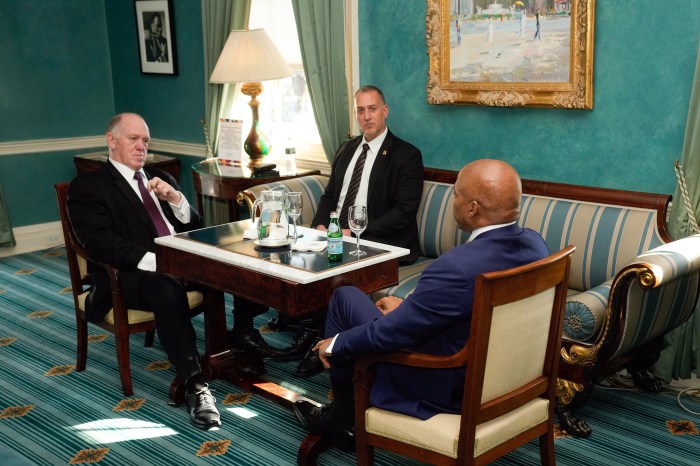A City Council member wants to nix a parking program he contends is costing New Yorkers millions and clogging the streets unnecessarily.
Councilman Costa Constantinides introduced legislation Wednesday that would end the Stipulated Fine Program that gives major businesses’ delivery vehicles reduced fines for traffic violations in exchange for their right to contest the ticket in court. Although the 13-year-old program was made to limit the amount of court work, Constantinides said in many cases drivers for companies such as UPS and Fresh Direct are taking advantage, double-parking their vehicles and in some cases getting no fines for their tickets.
"The Stipulated Fine Program kicked the can down the road when it comes to our conversation of congestion," he said.
More than 2,700 businesses are enrolled in the program, according to the councilman’s office. Exactly how much revenue the city has lost from the reduced fines could not be determined, but Constantinides said it could be in the "hundreds of millions of dollars."
Under Constantinides’ bill, the fines would only be reduced or dismissed after an administrative hearing. He noted that the city’s parking violation system has gone through several tech upgrades since 2005, and its digital system has made the process for disputing a ticket more efficient.
Councilman Ydanis Rodriguez, who chairs the council’s transportation committee, said he supports eliminating the program and making big companies pay their fair share for fines.
"It’s about trying to level the playing field for everyone," he said.
Constantinides also introduced a bill that would require Department of Citywide Administrative Services to plan for deliveries between 7 p.m. and 6 a.m., in an effort to cut down truck congestion during the day.
He also introduced legislation that would install a "leading pedestrian interval signal," which gives pedestrians the go-ahead a few seconds before cars traveling in the same direction get their green light, at high-risk locations such as schools, hospitals and parks.





































